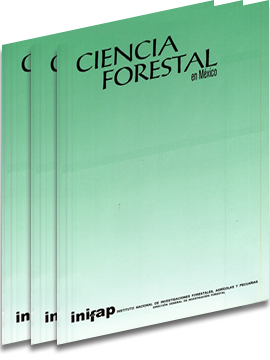DESARROLLO AGROFORESTAL COMUNITARIO SUSTENTABLE EN LA REGIÓN FRONTERIZA MÉXICO - ESTADOS UNIDOS DE AMÉRICA
Keywords:
Agroforestry, sustainable community forestry, sustainable development, México-U.S.A . border, Ojinaga project, wastewater useAbstract
The environmental and natural resources deterioration in the arid and semiarid zones have motivated a great interest in arder to look for a transition toward the sustainable development. This ecological condition includes areas in the border region between Mexico and the United States. A common prevalent situation along the border region is the inadequate wastewater treatment and in sorne cases, the absences of these systems. In addition, the conventional wastewater treatment systems are very expensive in order to be installed and operated, not providing the important advantages for the ecological and socio-economic growth. The Ojinaga Agroforestry Project (PACO) is a.n alternative that could direct 'those necessities, since it seeks to integrate approaches of sustainable development. A main component of this study is the use and management of wastewater· and irrigation water for the commercial production of. wood for fiber. In this sense, an important element is the involvement of the border community of Ojinaga, Chihuahua, Mexico, in the decision making process through the Search Conference Methodology. The social community participates in planning, implementing and assessing th'e actions for its development, including ecological, social and economic aspects. The purpose is to reduce the environmental pollution and the pressure on the natural resources. At the same time, these measures help to use and manage wastewater and irrigation water aiming to improve their quality and the salted soil conditions and abandoned lands, and generate better economic opportunities and sources of employment for the people in this border region.
Downloads
Downloads
Published
How to Cite
Issue
Section
License
The authors who publish in Revista Mexicana de Ciencias Forestales accept the following conditions:
In accordance with copyright laws, Revista Mexicana de Ciencias Forestales recognizes and respects the authors’ moral right and ownership of property rights which will be transferred to the journal for dissemination in open access.
All the texts published by Revista Mexicana de Ciencias Forestales –with no exception– are distributed under a Creative Commons License Attribution-NonCommercial 4.0 International (CC BY-NC 4.0), which allows third parties to use the publication as long as the work’s authorship and its first publication in this journal are mentioned
The author(s) can enter into independent and additional contractual agreements for the nonexclusive distribution of the version of the article published in Revista Mexicana de Ciencias Forestales (for example, include it into an institutional repository or publish it in a book) as long as it is clearly and explicitly indicated that the work was published for the first time in Revista Mexicana de Ciencias Forestales.
For all the above, the authors shall send the form of Letter-transfer of Property Rights for the first publication duly filled in and signed by the author(s). This form must be sent as a PDF file to: ciencia.forestal2@inifap.gob.mx
This work is licensed under a Creative Commons Attribution-Noncommercial 4.0 International license.


